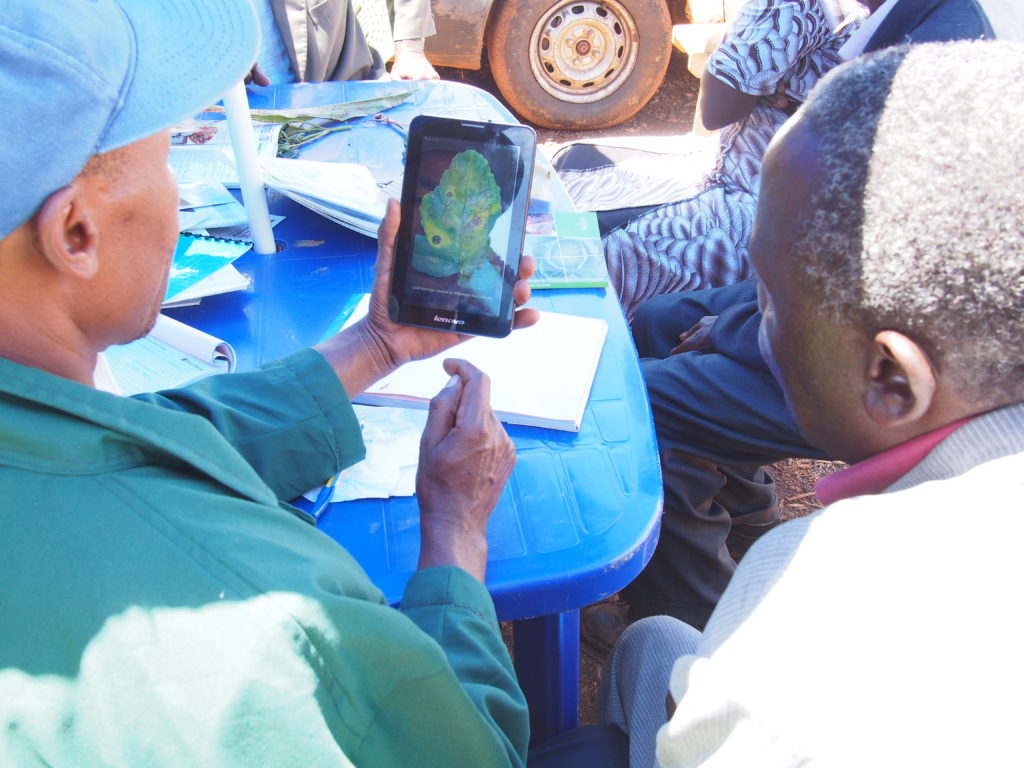E-plant clinics rolled out in Jammu, India
Last year Plantwise launched in Jammu & Kashmir state, India, with the establishment of 15 plant clinics across 3 districts in the Jammu region. This year sees the launch of an exciting new development, with the roll-out of e-plant clinics to revolutionize the extension system and support the quick transfer of information and advice to…
Working with women farmers to make Cambodian communities “Plantwise”
Greater involvement of women in plant clinics has improved the climate resilience of the farmers in Rohal Suong village, Cambodia. Women farmers play a critical role in agricultural production and food security, as well as household welfare in most Southeast Asian countries. According to a Census of Agriculture in Cambodia in 2013, of the 82% of…
How tablets are transforming Nepal’s plant clinics
I meet Man Bahadur Chhetri and his assistant on a bright Sunday morning as they are setting up the e-plant clinic in Gorkana, on the outskirts of Kathmandu. On the drive over, I saw plenty of maize being grown on smallholder plots and, here and there, tomatoes in polytunnels. Around the corner from the clinic,…
Plant Clinics and Farm Visits Diagnosing Fall Armyworm in Malawi
Mr. Guze Kampinga visits the plant clinic at Dowa Turn Off with his damaged maize samples and is received by Mrs Eluby Phiri a trained plant doctor. “I have grown about 0.8 ha of rain-fed and 0.4ha irrigated maize (Ndimba). This year a strange pest has seriously damaged my maize and almost all people in…
Plantwise Annual Report 2016 released
The Plantwise Annual Report is an update on the programme, listing key highlights along with details on progress, lessons learned and next steps for each of the three programme components: Plant Health Systems Development, the Knowledge Bank and Monitoring & Evaluation. Highlights include (cumulative numbers): 9.8 million farmers have been reached directly and indirectly through…
Reaching more farmers with innovative early morning plant clinics
It is generally accepted that early morning is the best time to learn and retain new information. As the saying goes: “the early bird gets the worm.” This long-held belief is being applied in Vavuniya, Sri Lanka, where plant clinics are now conducted at the crack of dawn. The plant clinics are a platform for…
Plantwise Ghana Educates Farmers on Major Crop Pest and Diseases
As part of its mass extension activities for 2016, Plantwise Ghana rolled out a four-week radio campaign to educate farmers about the detection and management of crop pests and diseases prevalent in the project’s five intervention regions in Ghana. The campaign, which took place between September and October 2016, involved five radio stations noted for…
Shifting gears: expansion of e-plant clinics in Kenya
“No matter where you’re from, your dreams are valid!” Passionate words spoken in 2014 during an indelible Oscar moment. The utterance of these words, coupled with the winning of an Academy Award, announced Lupita Nyong’o’s entry into the global stage. Two years later in Lupita’s country of origin, Kenya, long-held dreams in the plant health…
Successful e-Plant Clinic launch in Nepal
E-plant clinic training commenced in Pokhara, Nepal, today, after a successful launch in Kathmandu earlier this week. ICT intervention for the country is funded by the Centre for Applied Crop Science (CACS), UK Government and training was inaugurated in Kathmandu by Dr. Suroj Pokharel, Secretary, Ministry of Agricultural Development and chaired by Sh. Dila Ram…



